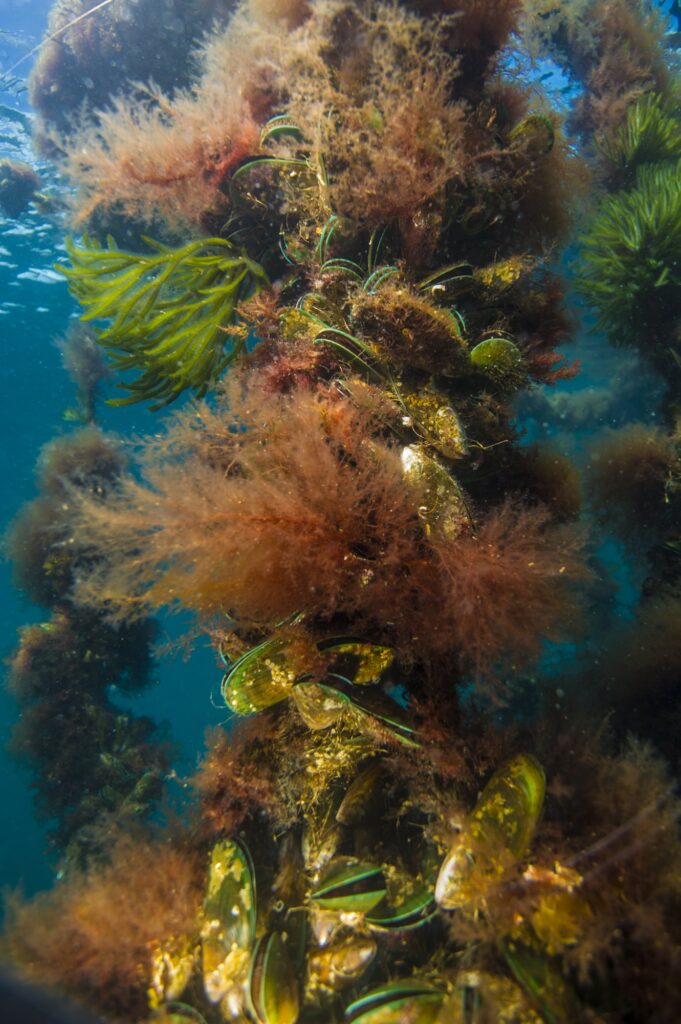My journey with green-lipped mussel oil began in 2009. Both my dogs and I started taking a green-lipped mussel oil gel cap, and the results were nothing short of remarkable. Please check out my story on Bella https://www.spencerbella.com/about-us/bellas-story/. Doctors often tout the benefits of fish oil supplements, but such a broad recommendation never sat well with me. After experiencing the positive effects firsthand and witnessing the transformation of my Golden Retriever, Bella, I became a staunch advocate for green-lipped mussel oil, recommending it to friends and family.
However, my advocacy was recently challenged when someone inquired about Krill Oil, particularly its shelf stability and susceptibility to rancidity. Admittedly, I was not well-versed in the specifics of Krill Oil, prompting me to delve deeper into the world of marine-based omega-3 sources.
Omega-3 fatty acids are essential nutrients that play a pivotal role in human and pet health. Their anti-inflammatory properties, cardiovascular benefits, and potential cognitive enhancements have made them a sought-after supplement. As the global demand for these nutrients’ surges, it’s imperative to understand the sources and their environmental implications.
The Unsustainable Race for Krill
Krill, tiny crustaceans found in abundance in the Antarctic, have become a target for the billion-dollar health supplement industry. Despite their small size, krill play a crucial role in the Antarctic ecosystem:
- Abundance and Ecological Significance: Krill, with their staggering numbers estimated at 400 million tons in the Antarctic, stand as one of the most abundant species on Earth. Their vast presence serves as a linchpin in the Antarctic marine ecosystem, providing a crucial food source for a diverse range of marine life, from small fish to the colossal whales, as well as penguins and seals. Their role in maintaining the balance and health of this ecosystem cannot be overstated.
- Carbon Cycle Contribution: Beyond their role as prey, krill are also ecological engineers. They consume carbon-rich food at the ocean’s surface and release it deeper down, effectively trapping carbon and playing a role in climate regulation.
The Environmental Implications of the Krill Oil Boom
The burgeoning demand for krill oil is not without its consequences. As consumers worldwide turn to krill oil for its touted health benefits, the pressure on the Antarctic ecosystem intensifies. Here are some of the pressing environmental concerns:
- Overharvesting: The rapid increase in krill fishing has led to concerns about overharvesting. While there are quotas in place, the speed at which they are being met is alarming. In some regions, these quotas are reached in record times, significantly faster than in previous years.
- Disruption of the Food Chain: Krill is a foundational species in the Antarctic food web. Overfishing threatens not just the krill population but the larger marine animals that rely on them for sustenance. A decline in krill numbers could lead to a cascading effect, impacting species like whales, seals, and penguins.
- Concentration of Fishing Activities: While overall krill fishing might be within global limits, the concentration of fishing in specific biodiverse regions is deeply concerning. These hotspot areas are vital for species that depend on krill as their primary food source.
- Climate Change Vulnerability: The Antarctic region is particularly sensitive to the effects of climate change. Warming waters and melting ice caps can alter krill habitats and breeding patterns. Combined with overfishing, climate change poses a dual threat to krill populations.
- Ecosystem Imbalance: Krill plays a role beyond just being a food source. They are involved in the carbon cycle, helping sequester carbon and playing a part in the health of our global climate. A decline in their numbers could disrupt these natural processes.
In light of these concerns, it’s crucial for consumers, industries, and regulatory bodies to approach krill oil harvesting with caution, ensuring that the drive for health benefits doesn’t come at the expense of our planet’s well-being.
Fish Oil: The Traditional Pillar of Omega-3s
For generations, fish oil has been heralded as the quintessential source of omega-3 fatty acids. Its reputation is built on a foundation of scientific research, cultural practices, and anecdotal evidence, all pointing to its myriad health benefits. From supporting cardiovascular health to enhancing cognitive functions, fish oil has found its way into the daily regimen of millions worldwide.
However, as with many natural resources, the widespread consumption and commercialization of fish oil presents a set of challenges. From environmental concerns to questions about sustainability and purity, the journey of fish oil from deep-sea fishing nets to our medicine cabinets is fraught with complexities.
Moreover, the market is flooded with a plethora of fish oil products, and not all are created equal. Many manufacturers, in a bid to cut costs, produce supplements that are not rich in genuine fish oil but are instead diluted with fillers. This practice not only compromises the efficacy of the product but also raises questions about its authenticity. Consumers lured by low prices might end up with a product that lacks the full benefits of pure fish oil, making it essential to discern quality from mere marketing gimmicks.
Environmental and Ethical Concerns:
- Overfishing and Marine Ecosystems: The global demand for fish oil has put immense pressure on fish populations. Overfishing threatens not just the target species but the entire marine ecosystem.
- Bycatch and Ecological Impact: Unsustainable fishing practices often result in the unintentional capture of non-target species. This bycatch can include endangered species, further pushing them toward extinction.
- Environmental Footprint: Beyond the direct impact on fish populations, the production of fish oil has a broader environmental footprint. From the fuel used by fishing fleets to the processing and global distribution of fish oil products, the carbon footprint is significant.
Health Concerns with Fish Oil
- Contaminants and Health Risks: Fish, especially those higher up in the food chain, can accumulate toxins. These contaminants, including mercury and PCBs, can end up in fish oil supplements.
- Oxidation and Quality: Fish oil is prone to oxidation, leading to the production of harmful compounds. Proper storage and processing are crucial to prevent this.
The Farmed vs. Wild-Caught Debate:
The debate between farmed and wild-caught fish is not just a matter of taste or texture; it touches on environmental, ethical, and health concerns:
- Environmental Implications: While wild-caught fish from well-managed fisheries can be sustainable, overfishing has led to the depletion of many fish stocks. Fish farming, or aquaculture, offers a potential solution but comes with its own set of environmental challenges, including water pollution and habitat destruction.
- Health Considerations: The diet and living conditions of fish, whether wild or farmed, can influence their nutritional profile and the presence of contaminants. Farmed fish, for instance, can be exposed to pesticides and antibiotics, while wild fish might contain different types of contaminants based on their habitat.
- Ethical and Welfare Concerns: The living conditions of farmed fish and the fishing practices for wild fish both raise ethical concerns. From the impact on non-target species to the broader marine ecosystem, the source of fish oil matters.
In conclusion, while fish oil remains a popular source of omega-3s, it’s essential to consider its environmental, health, and ethical implications. As consumers become more informed, the shift toward more sustainable and ethical sources, like green-lipped mussel oil, becomes increasingly important. Let’s look at green-lipped mussel oil.
Green-Lipped Mussel Oil: A Comprehensive and Sustainable Omega-3 Source

Green-lipped mussel oil, derived from mussels native to the pristine waters of New Zealand, is emerging as a frontrunner in the omega-3 supplement world. Its unique composition, combined with sustainable farming practices, makes it a compelling choice for those seeking a potent and environmentally friendly source of omega-3s.
- Unique Omega-3 Profile: Green-lipped mussel oil stands out in the omega-3 world due to its unique fatty acid composition. While most marine oils offer EPA and DHA, green-lipped mussel oil is the only known source of eicosatetraenoic acid (ETA). This rare omega-3 fatty acid has garnered attention for its potent anti-inflammatory properties, which are believed to be even more effective than those of EPA and DHA. The presence of ETA makes green-lipped mussel oil a particularly valuable supplement for managing inflammatory conditions.
- Natural Blend of Nutrients: Beyond its omega-3 content, green-lipped mussel oil is a treasure trove of other beneficial compounds. It naturally contains chondroitin and glucosamine, two compounds often recommended for joint health. These compounds, in synergy with the omega-3s, can offer comprehensive support for joint function and mobility. Additionally, the oil is rich in minerals and vitamins, further enhancing its health-promoting profile.
- Sustainable and Eco-friendly Farming: The mussels from which the oil is derived are farmed using sustainable methods that have minimal environmental impact. Grown on ropes suspended in the ocean, these mussels don’t require feed, as they filter plankton from the water. This method ensures there’s no negative impact on the seabed, and it also helps improve water quality by reducing excess phytoplankton. The farming practices employed in New Zealand are stringent, ensuring that the mussels are of the highest quality and free from contaminants.
- Holistic Health Benefits: The combination of EPA, DHA, and the unique ETA, along with chondroitin, glucosamine, and essential minerals, makes green-lipped mussel oil a holistic supplement. It doesn’t just target one aspect of health but offers a comprehensive range of benefits, from supporting cardiovascular health to promoting joint mobility and reducing inflammation.
In conclusion, as the global community becomes more conscious of sustainability and the environmental impact of their choices, green-lipped mussel oil presents itself as a superior alternative. Its unique nutrient profile, combined with eco-friendly farming practices, positions it as a frontrunner in the world of omega-3 supplements.
Q & A
Q: Why should we limit krill harvesting in the oceans?
A: Krill are essential to marine ecosystems, especially in the Antarctic, serving as food for whales, seals, and penguins. Overharvesting risks disrupting this food chain and marine biodiversity. Krill also contributes to the carbon cycle, impacting climate regulation. Concentrated krill fishing in biodiverse areas further threatens ecosystem balance. Reducing krill harvesting preserves ocean health and combats climate change.
Q: With the plethora of fish oil supplements on the market, how can consumers gauge their efficacy?
A: To determine the efficacy of fish oil supplements, consumers should check the label for the concentration of EPA and DHA, ensure it’s sourced from clean waters, and verify its purity from contaminants. Additionally, looking for third-party testing certifications and avoiding products with unnecessary fillers can help identify a potent and genuine product.
Q: How does green-lipped mussel oil compare to fish and krill oil?
A: While fish and krill oil primarily offer EPA and DHA omega-3s, green-lipped mussel oil is the only known source of the omega-3 fatty acid ETA. This makes it unique in its anti-inflammatory properties.
Q: Why is green lipped mussel oil better for dogs and cats than krill oil?
A: Green lipped mussel oil: While fish, krill and squid oil only supply EPA and DHA omega fats, Green Lipped Mussel is more complete. It’s the world’s richest source of ETA, an omega-3 fat that’s well researched for its anti-inflammatory properties, plus other immune supporting fatty acids.
Q: Is “Essential OMEGAS” a top-quality, Green-lipped mussel oil product?
A: Absolutely! “Essential OMEGAS” from Spencer & Bella is a premium, Green-lipped mussel oil supplement, manufactured in New Zealand to ensure the utmost integrity of its ingredients. It offers a comprehensive spectrum of over 30 Omega-3s, including the essential fatty acids EPA, DHA, and the unique ETA. This potent, all-natural formula is crafted to combat inflammation and bolster various health systems. Being of human-grade quality, it’s suitable for humans, dogs, cats, and horses, provided there are no fish allergies.




